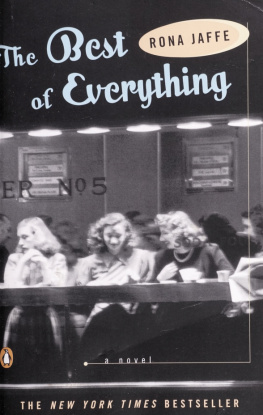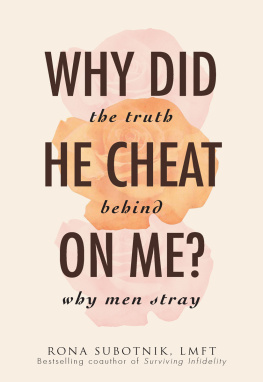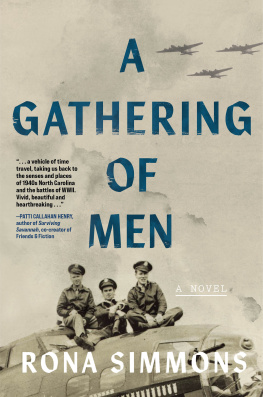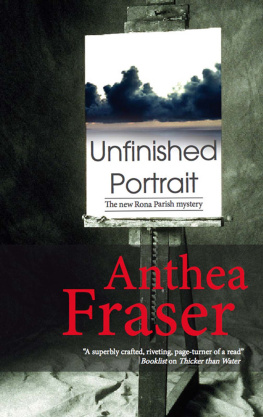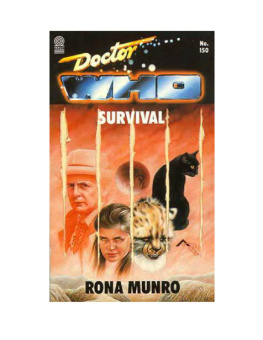
The best of everything
Rona Jaffe
This book was produced in EPUB format by the Internet Archive.
The book pages were scanned and converted to EPUB format automatically. This process relies on optical character recognition, and is somewhat susceptible to errors. The book may not offer the correct reading sequence, and there may be weird characters, non-words, and incorrect guesses at structure. Some page numbers and headers or footers may remain from the scanned page. The process which identifies images might have found stray marks on the page which are not actually images from the book. The hidden page numbering which may be available to your ereader corresponds to the numbered pages in the print edition, but is not an exact match; page numbers will increment at the same rate as the corresponding print edition, but we may have started numbering before the print book's visible page numbers. The Internet Archive is working to improve the scanning process and resulting books, but in the meantime, we hope that this book will be useful to you.
The Internet Archive was founded in 1996 to build an Internet library and to promote universal access to all knowledge. The Archive's purposes include offering permanent access for researchers, historians, scholars, people with disabilities, and the general public to historical collections that exist in digital format. The Internet Archive includes texts, audio, moving images, and software as well as archived web pages, and provides specialized services for information access for the blind and other persons with disabilities.
Created with abbyy2epub (v.1.7.0)
THE NEW YORK TIMES BESTSELLER
rMi
Digitized by the Internet Archivein 2017 with funding fromKahle/Austin Foundation
https ://arch i ve. 0 rg/detai Is/bestofeve ryth i ngOOjaf f_0
Praise for Rona Jaffe andThe Best of Everything
A classic of its kind. The dialogue is real, the people are real.Most career girls, past or present, will respond with the shock ofauthenticity. Saturday Review
It will ring a bell with anyone who has lived in New York at a timeof life when the city looks like a vast crackerjack box of amorous
possibilities. It has mountains of merit.
New York World-Telegram
Rona Jaffe will have you believing that very shocking things dohappen in New York bars and apartments. This is a story that shouldbe read by girls with dramatic ideas about New York, parents withqualms about their daughters ideas, and men with baffling ques-tions about girls minds. The Cleveland Press
An exuberant and readable book. Miss Jaffe is an artful and per-suasive storyteller. It almost will certainly ruffle many a male ego.
The Spokane Chronicle
Such is the authors skill that this story of five girls is unmistakablythe story of someone you know. The Boston Globe
Any employer reading these pages will make a mental note tocheck up on what the girls in his office do after lunch, and withwhom. New York Post
ABOUT THE AUTHOR
Rona JafFe is the author of sixteen books, including thebestselling Class Reunion, Family Secrets, The LastChance, and Mr. Right Is Dead. She is the founder ofthe Rona Jaffe Foundation, which presents a nationalliterary award to promising women writers.
YOU DESERVE
THE BEST OF EVERYTHING
The best job, the best surroundings,the best pay, the best contacts.
From an ad in THE NEW YORK TIMES
Foreword
The way all this happened sounds itself like a novel. I was a youngstruggling writer in New York City in the 1950s who had been practic-ing her craft since she was two and a half. I used to send stories to TheNew Yorker when I was nine, and they would come right back. The ed-itors thought I was an adult who couldnt write.
After graduating from Radcliffe at nineteen, I worked at a publishingcompany, Fawcett Publications, for almost four years, rising from filingclerk to associate editor. While there, I finally had several stories pub-lished in national magazines, and eventually quit my job to write fulltime, hoping to complete a novel. I had no money and was still livingwith my parents.
One day, I was visiting the offices of Simon & Schuster to see my col-lege friend, Phyllis Levy, who was then the secretary to the editor-in-chief, Jack Goodman. Jerry Wald, the famous Hollywood producer,happened to be there meeting with her boss. Goodman said to Wald,Rona s going to write a hell of a novel some day.
And were going to publish it, Phyllis added. '
Wald, who was in town scouting for properties to option, said, Imlooking -for a modern-day Kitty Foyle. A book about working girls in NewYork. Out of curiosity, I went to the library and read the novel byChristopher Morley, which had been made into the 1940 movie starringGinger Rogers. I thought it was dumb. I said to myself: He doesntknow anything about women. I know about women. And I work in anoffice. Still I let the matter drop, until I went to Hollywood on vacationwith Phyllis, and Jerry invited us to lunch. I wanted to say something in-teresting to him, so I casually remarked, Im going to write that working-girl book. He replied that he was going to produce it.
On the train back from California, coming into New York, I had thevision of the beginning for the book, which is all the hundreds andhundreds of girls walking to work. I came up with the title that morn
vn
ing, too, a phrase I remembered from a New York Times help-wanted adthat began: You Deserve the Best of Everything.
I didnt know if the things that happened to my friends and me werean anomaly, so I interviewed fifty women to see if theyd had the sameexperiences, with the men and the jobs and all the things nobody spokeabout in polite company. Back then, people didnt talk about not beinga virgin. They didnt talk about going out with married men. They didnttalk about abortion. They didnt talk about sexual harassment, which hadno name in those days. But after interviewing these women, I realizedthat all these issues were part of their lives too. I thought that if I couldhelp one young woman sitting in her tiny apartment thinking she was allalone and a bad girl, then the book would be worthwhile. I had no ideawhat a chord it would strike for millions.
Jack Goodman died suddenly of a heart attack, and was replaced bySimon & Schusters rising young star Robert Gottleib. He told me tolook back in horror and write, and so I did. We spoke on the phoneregularly, and Id tell him what I was going to work on every day. Mean-while, Jerry Wald was doing a huge publicity campaign for a book Ihadn t written and he hadnt read, so it was a surreal and rather nerve-racking time.
I wrote, obsessed, every day for five months and five days, on a man-ual typewriter, until the 775-page manuscript was finished and the twofingers I used to type with were bleeding under the nails. I was proud ofthe fact that my publisher made no revisions except for grammar andspelling. And because I hadnt made a carbon copy, and since we didnthave copying machines then, they had to send the manuscript out to atyping service to make copies. My first indication that the book wouldbe a success was when I spoke .with the women from the tvping servicewho had gotten hold of my phone number. Because the publisher wasin a hurry, they had to hire a team of typists who were each given only aportion of the manuscript to work on. The girls had gotten so caught upin the chapters they were working on, they couldnt wait for the finishedbook to find out what happened next. Instead, they would ring me. Atthe time I thought: Theres my audience.
The book was published less than a year after I left my parents, gotmy own apartment, and began it. I was twenty-six.
Next page
